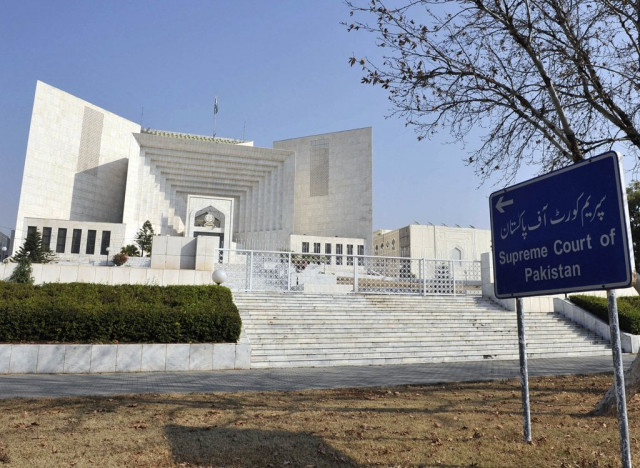Eight Supreme Court judges to retire in next two years
Tenures of five of them will end in first eight months of 2022

The Supreme Court presently comprises the chief justice and 16 other judges but eight of them will retire in the next two years.
First, Justice Faisal Arab will retire on November 4 this year. The tenures of Justice Manzoor Ahmad Malik and Justice Mushir Alam will end on April 30 and August 17 next year respectively.
Five judges of the apex court are going to retire in the first eight months of 2022.
Chief Justice Gulzar Ahmed will retire on February 1, 2022, Justice Qazi Muhammad Amin Ahmed on March 25, Justice Maqbool Baqar on April 4, Justice Mazhar Alam Miankhel on July 13 and Justice Sajjad Ali Shah on August 13.
Of the eight judges, three will retire during the tenure of the incumbent top judge Gulzar Ahmed and the remaining five when Justice Umar Ata Bandial will be the chief justice.
He will be followed by Justice Qazi Faez Isa, Justice Ijaz ul Ahsan, Justice Syed Mansoor Ali Shah, Justice Muneeb Akhtar and Justice Yahya Afridi.
The elevation of a judge to the apex court is always a challenge for the chief justice.
The Judicial Commission of Pakistan (JCP), headed by the CJ, has to consider different aspects like a judge’s expertise, integrity, conduct and proper representation of provinces, which was being overlooked for the last few years.
Currently, eight SC judges are from the province of Punjab, six from Sindh, two from Khyber-Pakhtunkhwa and only one from Balochistan.
The Parliamentary Committee on Judges Appointment has already expressed its concerns over not giving proper representation to smaller provinces in the Supreme Court.
A lawyer having an experience of 15 years’ practice can also be appointed as an SC judge under the law. However, no lawyer has been directly elevated to the apex court so far.
In the last five years, four SC judges have been elevated against the principle of seniority.
Peshawar High Court Chief Justice Waqar Ahmad Seth has challenged the elevation of three judges to the apex court over the issue of seniority.
Similarly, the superior bars, wherein the Professional Lawyers Group is in majority, also moved the apex court against the appointment of the three SC judges.
Lawyers are divided over the elevation of high court on the basis of seniority only.
A senior lawyer believes that as a matter of principle, only the best of high court judges should be considered for appointment as a judge of the Supreme Court and the nomination for that should be based on competence, integrity, performance and juristic ability and not necessarily seniority.
This is for a number of reasons for this. First, such an appointment is not a promotion. Secondly, the SC is the final court of appeal so every decision should state reasons with utmost ability. All decisions of the SC serve as precedents to be followed all over the country.
The lawyer said historically speaking, before the insertion of Article 175A in the Constitution, the bar had frequently objected to judicial appointments to the SC in violation of seniority primarily for ensuring independence of the judiciary. As the apex court is an executive limb of the state, such appointments could be used as a tool to discriminate against independent and upright judges.
The situation, however, has changed now. There is no lurking fear or potential for external attack on independence of the judiciary after the 18th Constitutional Amendment.
There is, however, a legitimate concern that while dispensing with seniority, the power to elevate judges in the SC might be subjected to arbitrariness and favouritism. Therefore, the Pakistan Bar Council has already demanded structuring of this discretionary power by the Judicial Commission while suitably amending its rules.



















COMMENTS
Comments are moderated and generally will be posted if they are on-topic and not abusive.
For more information, please see our Comments FAQ